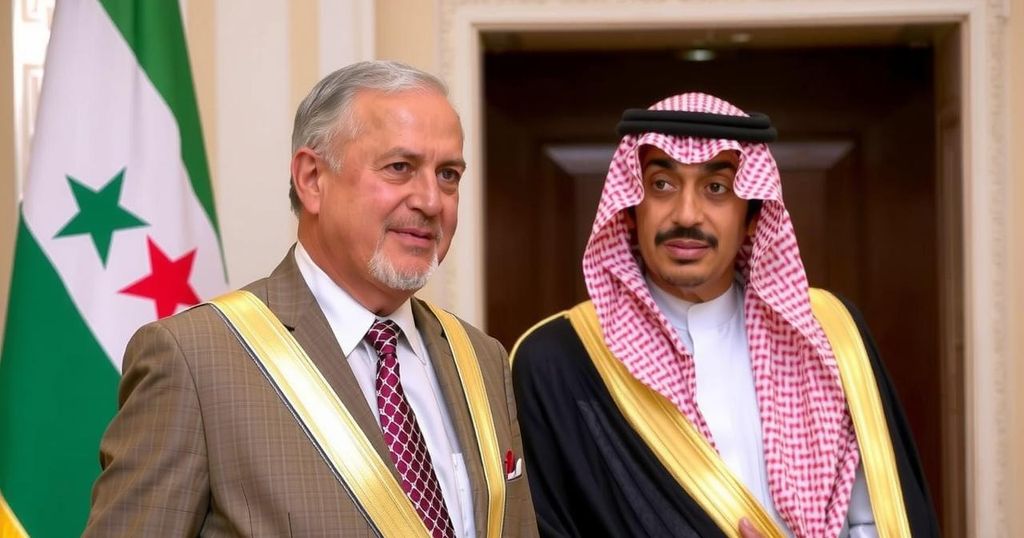Syria’s new Foreign Minister, Asaad Al-Shaibani, visited Saudi Arabia to strengthen diplomatic ties after the fall of Bashar al-Assad’s regime. He expressed hopes for a new era in relations while leading a significant delegation. The visit indicates aspirations for economic reconstruction and a realignment in regional diplomacy, particularly as Saudi Arabia seeks to diminish Iranian influence in Syria.
Asaad Al-Shaibani, the newly appointed Syrian Foreign Minister, embarked on his inaugural overseas visit to Saudi Arabia, marking a significant shift in relations following the recent change in Syria’s governance. Upon his arrival, Al-Shaibani expressed ambitions to turn a “new, bright page” in Syrian-Saudi relations, emphasizing the historical ties between the two nations. The delegation, which included Syria’s Defense Minister and General Intelligence Chief, was received by Saudi officials, highlighting the visit’s diplomatic importance.
This trip follows the ousting of former Syrian President Bashar al-Assad on December 8 and is seen as pivotal in stabilizing Syria’s post-conflict identity. Al-Shaibani previously underscored his intent to lift Western sanctions, underlining the new administration’s focus on reconstruction and sovereignty. Former U.S. diplomat Adam Clements noted that Saudi Arabia aims to strengthen its ties with Syria, particularly as Iranian influence diminishes. Furthermore, Ahmed al-Sharaa, a key figure in the rebel forces, acknowledged Saudi Arabia’s potential for significant investment in Syria’s future development.
The current diplomatic engagement between Syria and Saudi Arabia emerges in the aftermath of a protracted civil war that significantly affected Syria’s political landscape and regional alliances. Following the fall of Bashar al-Assad’s regime, newly appointed leaders seek to re-establish ties with major Arab states, with Saudi Arabia at the forefront of these diplomatic efforts. This visit represents the first official ties with a neighboring nation since the regime change, indicating a shift towards potential collaboration and reconstruction in Syria, especially as the international community looks towards the potential lifting of sanctions.
In conclusion, Asaad Al-Shaibani’s visit to Saudi Arabia is emblematic of Syria’s desire to foster new diplomatic relations that can aid in the nation’s recovery. By engaging with Saudi officials, Syria aims to redefine its role in the region, restore economic stability, and seek support for much-needed reconstruction efforts. As both countries look to the future, the evolving dynamics in Syria’s governance and regional ties could hold significant implications for stability and development in the Middle East.
Original Source: www.aljazeera.com






